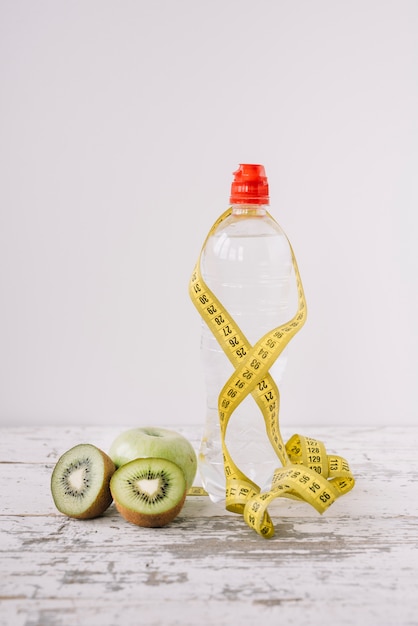
If you’re trying to lose weight, you might think counting calories and eating less is the way to go. But it’s not that simple, says Terry Fairclough, a top personal trainer and co-founder of Your Body Programme (YBP).
As a personal trainer, I often hear many opinions on the best diet for weight loss. Should you count calories? Go on a low fat, low carb, or high protein diet? Or maybe try fasting? Maybe eat small, regular meals three times a day?
It’s important to remember that while different approaches might work for various body types, goals, and activity levels, one thing you shouldn’t do is undereat.
We all know someone who starts counting calories and drastically restricts their intake to get ready for summer. They lose weight quickly, right? Yes, but that’s not the perfect solution. A calorie deficit can lead to weight loss, but it’s not always fat loss, which is what most people aim for.
Western diets often provide more calories than needed, so some might benefit from a slight calorie deficit. However, many people think under-eating is the key to weight loss. It’s not.
When you eat, your body converts carbohydrates into glucose, a form of sugar that serves as the primary energy source for your cells. Unused glucose is stored in muscles and the liver as glycogen, which includes linked glucose molecules and water. When you cut calories, your body loses this stored carbohydrate and water, not necessarily fat.
In reality, severe calorie deficits make your body hold onto fat and use protein for energy instead. Protein is crucial for building muscle, and having more muscle helps burn more fat, even at rest. Therefore, you need a balanced intake of fats, carbs, and protein.
Contrary to popular belief, you need fat to burn fat. Fat is a long-lasting energy source, offering more than twice the potential energy of carbs or protein. Fat is also stored in muscles and used during exercise. Eliminating fat from your diet can deprive you of the energy necessary for effective workouts.
Moreover, cutting calories and essential nutrients can lead to deficiencies, affecting various body systems like your immune, liver, and digestive systems, and slowing down your metabolism. Health problems like fatigue, malnutrition, osteoporosis, anemia, and hormonal imbalances can arise, adding stress to your body.
When stressed, your body releases cortisol, a hormone that breaks down fuel for energy. Initially, this might cause weight loss, but chronic stress leads to fat gain by breaking down protein and causing the body to hold onto fat.
Three main problems arise with protein breakdown due to high cortisol:
1. Slower metabolism.
2. Increased fat storage, especially around the belly.
3. Thyroid issues, which affect metabolism.
Additionally, stress compromises digestive function, impairing nutrient absorption necessary for health and fitness. Sleep can also suffer; low blood sugar triggers adrenaline, waking you up at night and impacting overall wellbeing.
I’ve met bodybuilders who cycle between restricting and increasing calories. Mistakes during this process can cause health issues. Keeping your calorie intake too low can make weight loss nearly impossible because your body, stuck in famine mode, stores any extra calories as fat.
The key is to eat the right number of calories, including fats, carbs, and proteins, tailored to your body type, goals, activity level, height, weight, and age. At Your Body Programme, we help you determine your specific needs with our YBP calculator.
Remember, you only have one body, so keep it healthy and nourished to maintain an active metabolism. Our program shows that increasing your calories can help you lose fat. Eat plenty of lean proteins, healthy carbs from fruits, vegetables, and whole grains, as well as healthy fats from sources like avocados, nuts, and olives.
Terry Fairclough is a co-founder of Your Body Programme, a Personal Trainer, and a Nutritional Therapist. When not working, he enjoys lifting weights and staying fit.




